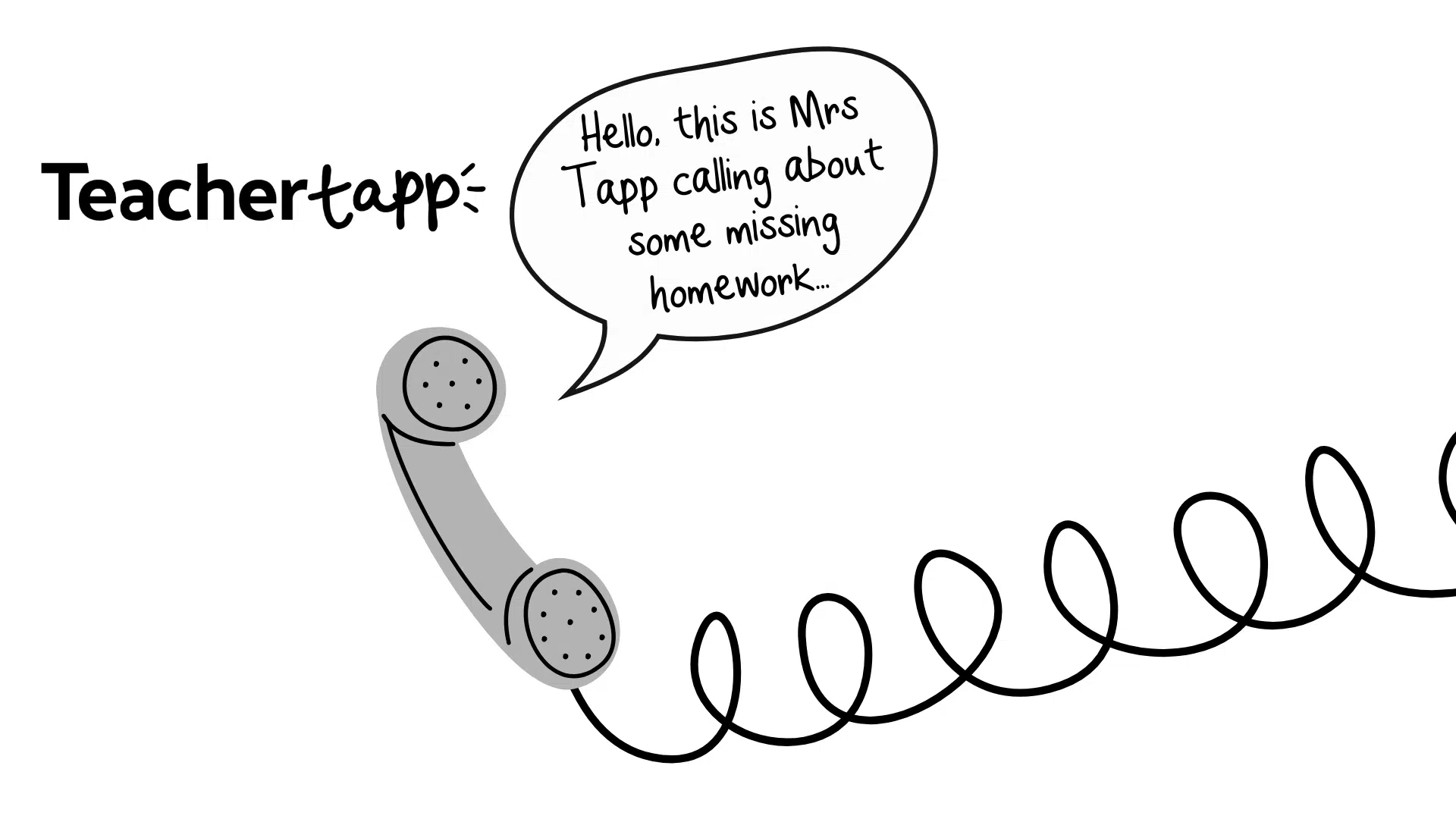
Hello Teacher Tappers!
November has raced past, and the October half-term feels like a million years ago. 12% believe November will be the toughest month of this academic year…but 29% predict December will be. Gulp.
You pick the winners
Clearly, now more than ever, Teacher Tappers need a pick-me-up. Enter, Teacher Tapp Star Boxes! These boxes are crammed with Teacher Tapp goodies, and we are calling for nominations for who to send them to!
Getting involved is easy: fill in this form, and tell us why your friend (or even you!) loves Teacher Tapp for a chance to receive some special post. But be quick! The form will close on the 30th of November. You can read the Ts and Cs here.
Parents
The autumn term is a key time to engage parents and set the tone for the year. But what are the best options for your parents evening set-up if you want maximum attendance from your parents? After the lockdowns, many schools switched to online and then stuck with it – but which combination is the best if you want to get parents through the door?
100% attendance at parents evening was reported by 10% of teachers in schools that had face-to-face appointments, 11% of teachers in schools with online or telephone appointments, and 13% of teachers that adopted a hybrid approach with both in-person and online appointments. It’s only three percentage points, but if you’re trying to increase 100% attendance and you don’t already have a hybrid option, this could be a change that might move the dial in the right direction.
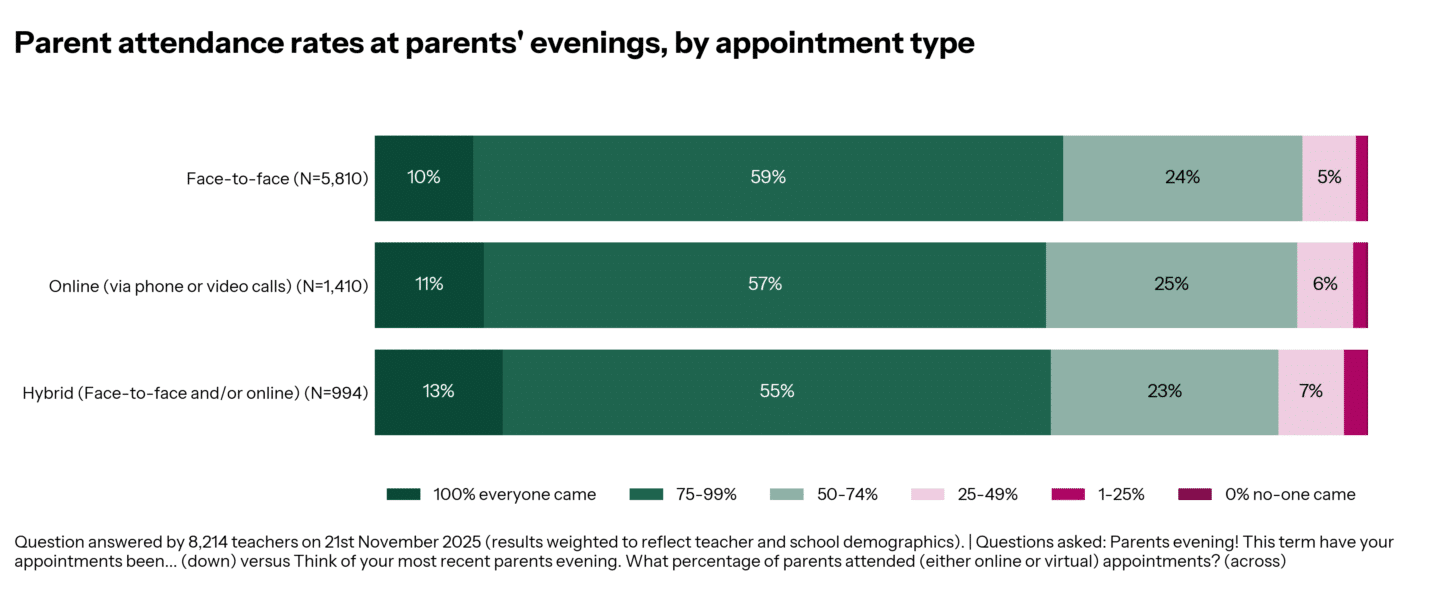
Parents evenings are just one part of the home-school relationship, and calls home are a method of communication that happens all year round. But how confident do teachers feel about picking up the phone? To find out, we split the Teacher Tappers into two random groups, half answered the question “Imagine you are phoning a parent to let them know something negative about their child. How confident would you feel?” and the other half were asked the same question, but about a positive phone call.
Ringing with bad news was unsurprisingly the less appealing option, but when we analysed the responses by years of experience teaching, we discovered less experienced teachers were more than TWICE as likely to feel unconfident about making a call compared to their more experienced colleagues: 43% of teachers with less than 5 years experience say they wouldn’t feel confident calling home vs 20% of teachers with over 20 years experience.
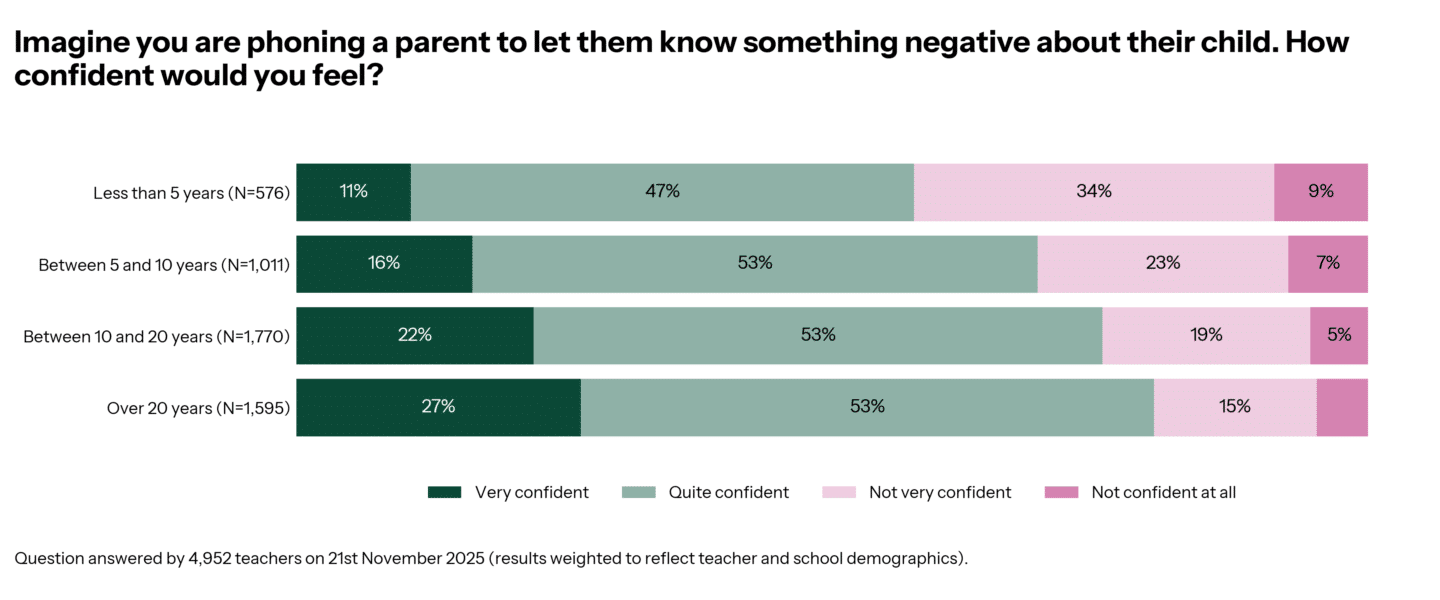
But how do feelings change if the purpose of the call is positive? Yes, confidence was higher – but there was still a significant number feeling unconfident about the phone call, and once again, newer teachers are more likely to report a lack of confidence: 11% of teachers in with less than 5 years experience, 8% of teachers with 5-10 years experience, 5% of teachers with 10-20 years experience, 4% of teachers in with over 20 years experience.
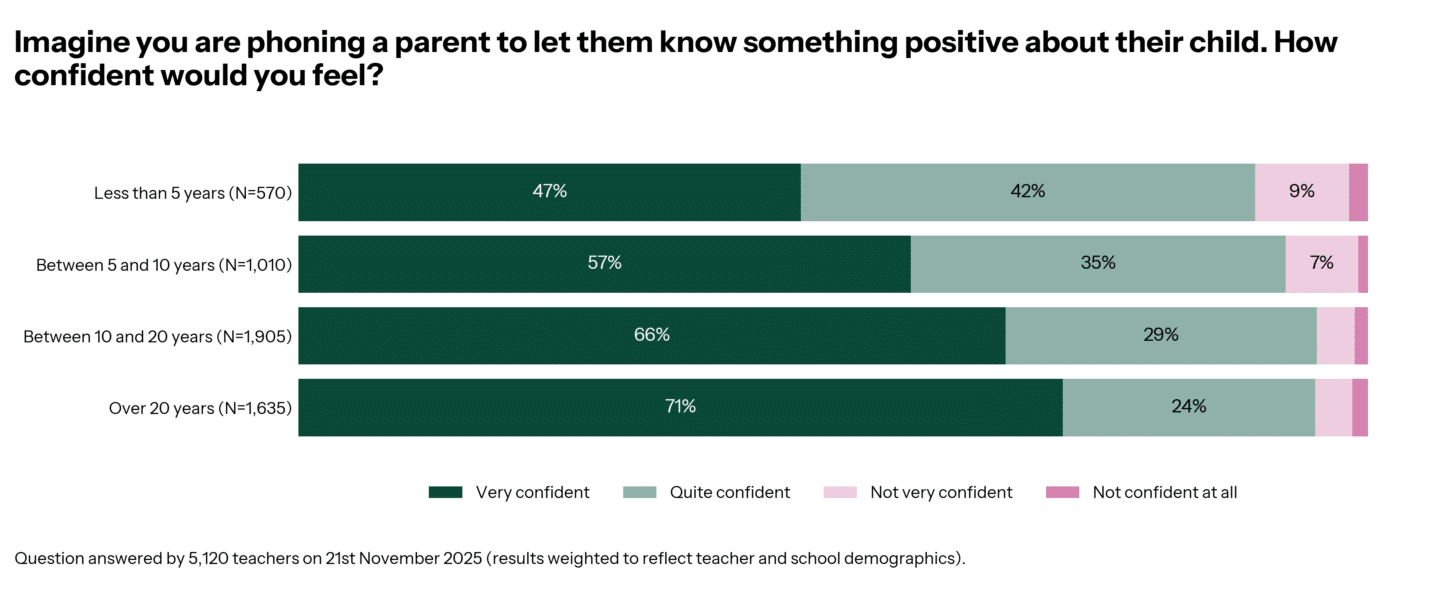
Secondary teachers felt more confident than primary teachers about making negative phone calls home (24% vs 17% very confident), but reported very similar rates about positive phone calls home (62% and 63% respectively). Last week we also asked about training in parent communications, and teachers who have had training on communicating with parents are more likely to feel very confident making a negative phone call, compared to teachers who have never had training (24% vs 18%).
How many teachers are getting training? Senior leaders are more likely than teachers without responsibilities to have had training on parental communication (36% vs 26%).
And when it comes to how manageable the parent-contact workload has been, 33% of primary and 37% of secondary teachers describe it as “very manageable”. However, we see this percentage leap up when we adjust for teachers who cannot be emailed directly, and have emails filtered through the office: 47% describe parent contact as “very manageable” in these schools.
What we haven’t asked about is the type of training you have had, or how helpful you found it! If you have suggestions for questions, please get in touch through the app here and use ‘contact us’ in the settings.
Leader aspirations
This week, headteachers have been in the headlines – NAHT have been crunching the numbers from the Department for Education, and found 30% of primary heads and 38% of secondary leaders under 50 are leaving their posts within five years.
Schools can’t exist without headteachers, and it’s worrying to see high churn in a position where ideally, schools need stability. Sadly, our findings reflect similar feelings:
Looking at just headteachers under 50, we asked if in 10 years they were still working in education, in an ideal world – what would they be doing?
- 36% of headteachers see themselves sticking with headships
- 26% aspire to move into a CEO role
- 10% want to move into initial teacher training
- 16% want a different role in education
- 2% want to work in a school but drop responsibility
- 16% want another job in education
What about those who potentially could move into headships? Ambitions of senior leaders vary depending on whether the teacher is male or female: 17% of female assistant and deputy headteachers see themselves as headteachers in ten years, whereas 30% of male assistant and deputy headteachers say the same. This likely speaks to the different challenges facing men and women at work, including caring responsibilities and societal expectations.
Work-life balance
Key to seeing a future in your current job is achieving a good work-life balance. This is something senior leaders are less likely to experience, with more teachers without leadership responsibilities agreeing they achieve a good balance between work and their private life, compared to teachers with leadership responsibilities (38% vs 42%).
Similarly, more senior leaders are likely to report their level of responsibility is “too high” compared to classroom teachers, and this spikes particularly high among headteachers (adding more context to the findings above that only 38% wish to stay in the role). 50% report that their responsibility feels too high, compared to 34% of assistant and deputy heads.
Too much or too little responsibility
The important thing is, if workload is a problem, the teacher has a way of talking about it without worrying that there will be a negative fallout from raising the issue. But is that true for everyone? Teachers are less likely than leaders to feel they can talk about workload without worrying about negative consequences (51% vs 68% agree). Perhaps this is something that could be tweaked within the performance management process, and leaders can try and create a culture where speaking up when the workload is too high is met with practical help and support.
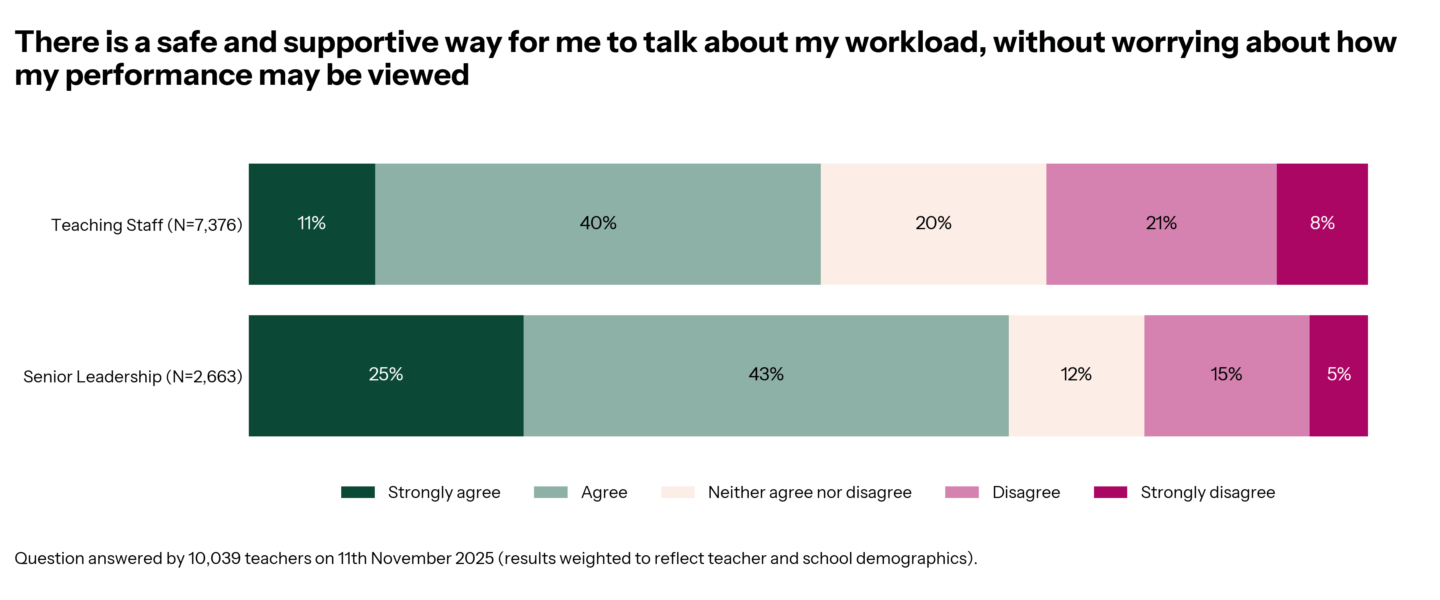
+ BONUS finding
Talking to students about LGBT+ topics isn’t just the job for PSHE teachers – sometimes these discussions arise when you least expect it! After all, sometimes children decide that it’s halfway through your explanation of the meaning of “ascending” and “descending” that they want to ask you that really tricky question they didn’t want to talk about with their parents.
However, compared to previous years, teachers are less likely to report they feel “completely comfortable” talking about LGBT+ topics (27% down from 29% in 2021). Fortunately, the majority of teachers do feel comfortable discussing these topics (82%) and secondary teachers and more likely than primary teachers to report that they feel “completely comfortable” (86% vs 77%).
Daily Reads
The top read this week from the EEF on self-regulation. 988 Teacher Tappers read it!
Got a blog you think we should feature? Email us at england@teachertapp.co.uk and we will check it out!


